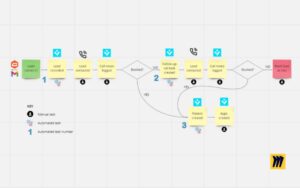The Personal Development Blog

Why CEOs Prioritise Quiet Moments with Loved Ones
In the world of leadership, pressure builds early. Deadlines, decisions, and distractions begin the moment the day starts. Yet, many successful CEOs are resisting the rush — choosing instead to begin with peace, presence, and purpose.
For these leaders, the most powerful part of the morning isn’t a boardroom briefing or inbox triage. It’s a shared breakfast, a walk with a partner, or quiet reflection with children.
This blog explores the quiet time habits that top leaders protect. You’ll learn how these morning connection strategies create not just better family moments — but stronger, more sustainable leadership rooted in family-first productivity.
Why Quiet Connection Creates Stronger Leaders
Calm isn’t weakness — it’s strength under control. Leaders who begin the day connected, centred, and grounded make sharper decisions and carry more resilience into high-pressure moments.
Key Benefits of Morning Quiet Time with Loved Ones:
- Increases emotional stability before stress hits
- Reinforces identity beyond professional success
- Builds stronger, more consistent family relationships
- Reduces mental clutter through presence
- Boosts long-term wellbeing and decision quality
Starting the day with people who matter most brings clarity to everything that follows.
What Quiet Time Looks Like for High-Level CEOs
This isn’t about scheduling family meetings or performance rituals. It’s about intentional presence.
Common Quiet Time Habits Include:
- Eating breakfast without phones or screens
- Sitting together in silence before the workday begins
- Walking or driving with children, free of distractions
- Listening, without multitasking
- Sharing a daily intention or quiet moment of gratitude
The goal isn’t productivity. It’s connection.
Morning Connection Strategies That Actually Work

These strategies don’t require more time. Just better focus.
1. Protected Morning Blocks
Block off the first 30–60 minutes as “family time” in your calendar. Let your team know that early meetings are off-limits unless urgent.
2. Digital-Free Breakfasts
Turn off devices. No email, news, or scrolling. Be present, even if it’s just for toast and tea.
3. Shared Routines With Children
Read together. Pack lunches side-by-side. Sit quietly while they write or draw. Even non-verbal moments count.
4. Partner Check-Ins

Sit with your partner over coffee or stretch together. Ask, “What does your day look like?” or “What’s one thing I can support you with today?”
5. Goodbye Rituals
A hug at the door. A goodbye phrase. A shared smile. Simple cues that show love and signal support before the day begins.
Why Family-First Productivity Isn’t a Contradiction
You can lead your business without neglecting your family — and your leadership often improves when you do both with presence.
Here’s Why:
- Grounded leaders make clearer decisions
- Present parents feel less guilt at work
- Emotional regulation improves under pressure
- You model healthy habits for your team
- You reduce reactivity and lead with intention
The “pause” is not a delay — it’s your anchor.
Examples of CEOs Protecting Morning Quiet Time
You’ll find that many prominent leaders prioritise calm and connection before chaos begins.
Jeff Weiner – Executive Chairman, LinkedIn
Blocks early mornings for reflection and thinking, often away from devices. He credits this space for better leadership clarity.
Satya Nadella – CEO, Microsoft
Practises mindful routines and family-focused mornings. Speaks openly about empathy and presence as pillars of effective leadership.
Jessica Alba – CEO, The Honest Company
Eats breakfast with her children before any work begins. Creates space for small talk and connection to ground her day.
Barack Obama (former US President)
Famously prioritised breakfast and school drop-offs for his daughters, despite one of the busiest roles on earth.
These routines are not luxuries — they are performance strategies grounded in humanity.
Creating Your Own Quiet Time Habit
You don’t need a new calendar system. You need a commitment to presence.
Try This Simple Morning Connection Framework:
Wake Before Distractions
Give yourself 10–30 minutes before the house or inbox wakes up.
Identify Your Anchor Person
Who grounds you? Your child, partner, parent? Make time for that person, even briefly.
Choose One Shared Habit
Breakfast, tea, stretching, quiet walk, reading. Keep it consistent.
Be Fully Present
No tech. No mental to-do lists. Focus fully on the moment.
Close With Intention
Say goodbye. Share a word. Leave with warmth.
These micro-moments become the macro-memories that hold your family together — and you, as a leader.
Quiet Time and Emotional Intelligence Mornings
Leaders with high emotional intelligence tend to regulate emotions better, communicate more effectively, and lead with greater compassion.
How Quiet Moments Build EQ:
- Encourages patience before urgency kicks in
- Deepens empathy by practising active listening
- Builds relational awareness early in the day
- Creates a pause before reactive patterns begin
- Strengthens connection between identity and values
Every mindful interaction builds leadership capital — at home and at work.
Daily Practice: The “Quiet 15” CEO Routine
Here’s a simple, repeatable practice to build quiet time habits into your morning.
The Quiet 15-Minute Framework:
- 5 mins: Sit with a partner or child (no devices)
- 3 mins: Share a gratitude or intention
- 5 mins: Prepare together (food, bags, plans)
- 2 mins: Say goodbye slowly and with warmth
You can expand or contract this, but the key is focus — not formality.
Family-First Productivity in Practice
It’s not about spending hours at home. It’s about the quality of your attention before you leave.
Quick Tips for Busy Mornings:

- Keep breakfast simple and shared
- Avoid early calls unless urgent
- Place phones in another room until 8:00 AM
- Say names when saying goodbye — it personalises affection
- Keep rituals short but consistent
Let your actions show your priorities — even when time is tight.
Overcoming Common Excuses
Busy mornings often lead to excuses that trade connection for productivity. Here’s how to counter them.
“I don’t have time.”
Response: You don’t need 60 minutes. You need 6 focused ones.
“My kids are teenagers and don’t want to talk.”
Response: Sit near them. Share music. Be silently present.
“I travel or start early often.”
Response: Use video calls, morning voice notes, or shared rituals across time zones.
“It feels too slow.”
Response: That’s the point. The calm strengthens the speed that follows.
Tracking the Impact Over Time
You can’t measure love with a dashboard, but you can observe its outcomes.
Watch for These Signs:
- Your children open up more without prompting
- You feel calmer during the workday
- You miss fewer important family moments
- You bring warmth, not just logic, to leadership
- Your mornings begin with confidence, not chaos
This is the ROI of presence.
Building Quiet Connection into Leadership Culture
Quiet time isn’t just a family tool. It builds your leadership brand.
Here’s How to Extend It:
- Start team meetings with a 60-second pause
- Open strategy sessions with intention statements
- Encourage work-life rituals across your org
- Model empathy and boundary-setting visibly
People follow who you are — not just what you do.
Presence Is the New Productivity
The most powerful CEOs aren’t just effective — they’re present. They know that the way you begin your day shapes how you lead it.
Through quiet time habits, thoughtful morning connection strategies, and intentional reflection, you build a life where success includes — not replaces — the people you care about most.
This is family-first productivity at its finest: calm, focused, and deeply human.
So tomorrow morning, don’t just dive into action. Pause. Sit. Listen. Connect. And lead your family — before you lead the world.









